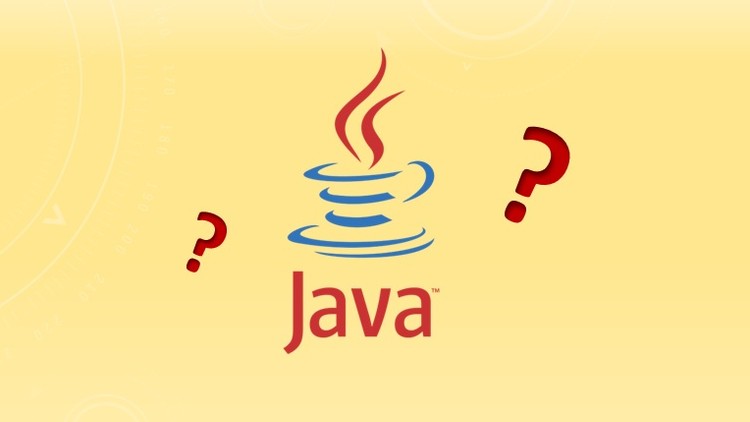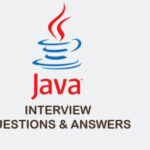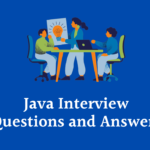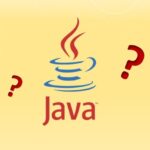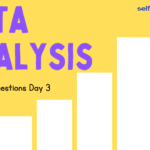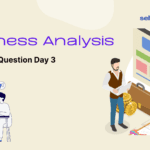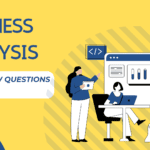Top 10 Java Interview Questions for Freshers
- What is Java?
Answer:
Java is a versatile, highlevel programming language and computing platform first developed by Sun Microsystems (now part of Oracle) in the mid1990s. Java is classbased, objectoriented, and designed to have minimal implementation dependencies, making it a popular choice for building software applications across multiple platforms. It is primarily used in web development, mobile applications (especially Android), enterprise solutions, and embedded systems.
- What are the key features of Java?
Answer:
Some notable features of Java include:
- Platform Independence: Java code is compiled into bytecode that runs on the Java Virtual Machine (JVM), enabling crossplatform execution (WORA – Write Once, Run Anywhere).
- ObjectOriented: Java supports an objectoriented programming approach, which makes it easier to structure and reuse code.
- Security: Java is designed with security features such as bytecode verification and access control mechanisms.
- Robust: With features like garbage collection, exception handling, and strong memory management, Java ensures reliability and stability.
- Multithreading Support: Java enables concurrent execution of two or more parts of a program to optimize performance, especially for large systems.
- High Performance: Through its JustInTime (JIT) compiler and the optimization provided by the JVM, Java offers improved performance, despite being an interpreted language.
- Rich API Library: Java’s vast standard library provides APIs for networking, data structures, concurrency, and more, making development more efficient.
- What is the difference between JDK, JRE, and JVM?
Answer:
- JVM (Java Virtual Machine): A virtual machine that runs Java bytecode and provides platform independence.
- JRE (Java Runtime Environment): Provides the libraries and JVM required to run Java applications. It does not include development tools.
- JDK (Java Development Kit): A full toolkit for Java developers, including the JRE, a compiler, and other development tools. It is used to develop, compile, and run Java programs.
- What is a platform in the context of Java?
Answer:
A platform refers to the environment in which a program runs. Java offers a softwarebased platform comprising the JVM and libraries that provide a uniform environment across different hardware systems, making Java programs portable and platformindependent.
- What is the Java Virtual Machine (JVM)?
Answer:
- The JVM is an abstract computing engine that enables computers to execute Java bytecode. It is a crucial component that provides Java with its crossplatform capabilities by interpreting bytecode and converting it into machinespecific code. JVMs also handle memory management and ensure security during execution.
- How is memory managed in the JVM?
Answer:
- The JVM uses the following memory areas:
- Class (Method) Area: Stores classrelated information such as fields, methods, and runtime constants.
- Heap: Allocates memory for objects created at runtime.
- Stack: Stores local variables, method call information, and returns values.
- Program Counter (PC) Register: Keeps track of the current JVM instruction being executed.
- Native Method Stack: Holds native method information when Java calls methods written in other programming languages.
- What is a ClassLoader in Java?
Answer:
A ClassLoader is a part of the Java Runtime Environment (JRE) that loads Java classes into the JVM at runtime. It dynamically loads Java classes into memory as needed, ensuring that the JVM doesn’t need to know the physical location of the classes ahead of time.
- What are some key applications of Java?
Answer:
- Java is widely used in different types of applications:
- Standalone Applications: Desktop software such as media players and antivirus programs, built using frameworks like AWT and Swing.
- Web Applications: Java is often used to build dynamic web applications with technologies like Servlets, JSP, Spring, and Hibernate.
- Enterprise Applications: Largescale distributed systems (e.g., banking software) benefit from Java’s scalability, security, and robustness, often utilizing technologies like EJB.
- Mobile Applications: Java powers Android app development and mobile apps with Java ME (Micro Edition).
- What are the different Java platforms?
Answer:
- Java SE (Standard Edition): The core Java platform used for generalpurpose development. It includes core libraries for OOP, multithreading, collections, and I/O.
- Java EE (Enterprise Edition): A platform built on Java SE, designed for building largescale enterprise applications. It includes APIs for web services, Servlets, and JSP.
- Java ME (Micro Edition): A platform for developing mobile and embedded device applications.
- What is the latest version of Java?
Answer:
- The latest stable version of Java is Java 21 (JDK 21), which brings improvements in language features, performance, and security.
This version emphasizes clarity, elaboration of key concepts, and structuring the content for easier readability, suitable for interview preparation.
